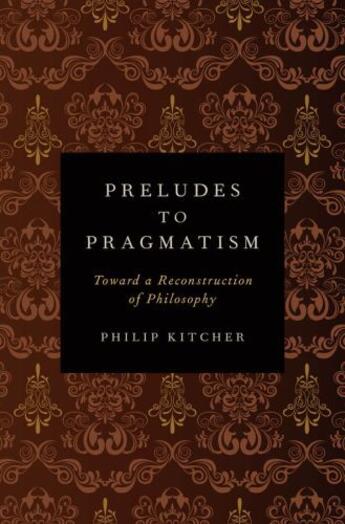Merci à toutes et à tous pour cette aventure collective
Passionné(e) de lecture ? Inscrivez-vous
gratuitement ou connectez-vous pour rejoindre la
communauté et bénéficier de toutes les fonctionnalités du site !

Over the last two decades the distinguished philosopher Philip Kitcher has started to make a serious case for pragmatism as the source of a new life in contemporary philosophy. There are some, like Kitcher, who view today's analytic philosophy as mired in narrowly focused, technical disputes of little interest to the wider world. What is the future of philosophy, and what would it look like?
While Classical Pragmatism -- the American philosophy developed by John Dewey, Charles Peirce, and William James in the 19th century -- has a mixed reputation today, Kitcher admires the way its core ideas provide a way to prioritize avenues of inquiry. As he points out, both James and Dewey shared a wish to eliminate "insignificant questions" from philosophy, and both harbored suspicion of "timeless" philosophical problems handed down generation after generation. Rather, they saw philosophy as inherently embedded in its time, grappling with pressing issues in religion, social life, art, politics, and education. Kitcher has become increasingly moved by this reformist approach to philosophy, and the published essays included here, alongside a detailed introduction setting out Kitcher's views, provide motivation for his view of the "reconstruction of philosophy." These essays try to install the pragmatic spirit into contemporary philosophy, renewing James and Dewey for our own times.
Il n'y a pas encore de discussion sur ce livre
Soyez le premier à en lancer une !

Merci à toutes et à tous pour cette aventure collective

Lara entame un stage en psychiatrie d’addictologie, en vue d’ouvrir ensuite une structure d’accueil pour jeunes en situation d’addiction au numérique...

Un douloureux passage à l'âge adulte, entre sensibilité et horreur...

Blanche vient de perdre son mari, Pierre, son autre elle-même. Un jour, elle rencontre Jules, un vieil homme amoureux des fleurs...